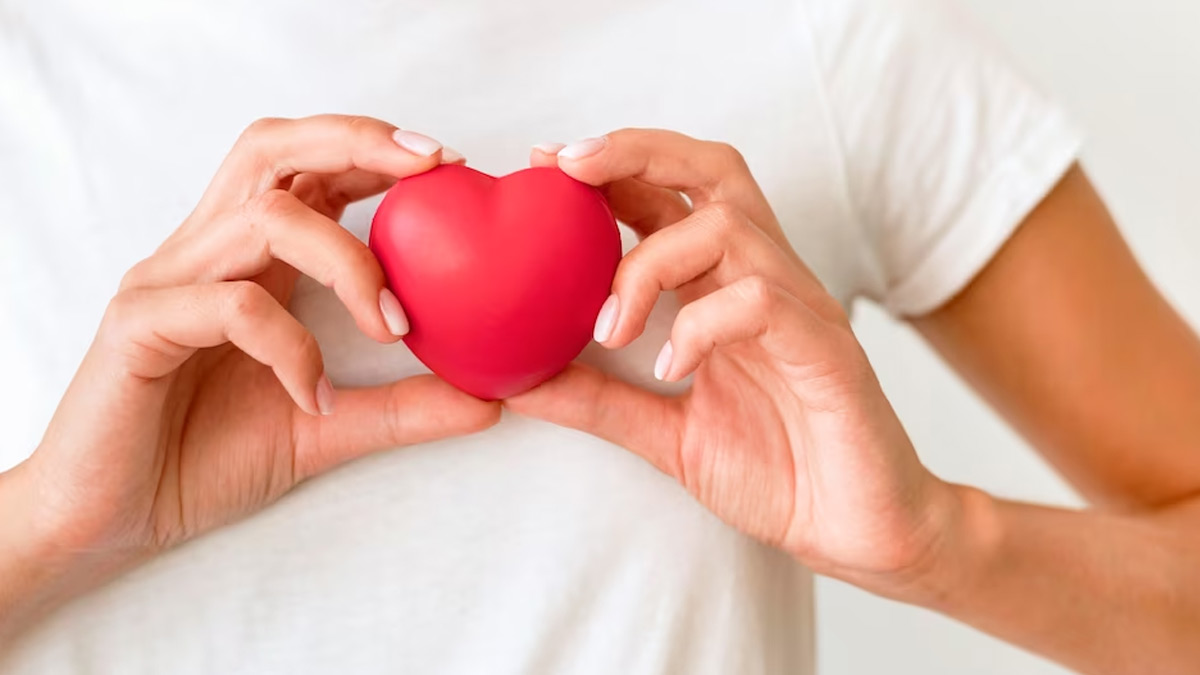
The heart is an essential organ that pumps blood throughout the body, delivering oxygen and nutrients to cells and removing waste products. But of late, cases of heart-related illnesses are on the rise. According to the National Heart, Lung, and Blood Institute of the National Center for Biotechnology Information, mortality and disability from cardiovascular disease have been gradually increasing over the last 30 years across the globe. Thus, it becomes important to keep track of your heart activity to know if it is working the right way.
Table of Content:-
To learn more about it, we reached out to Dr Kala Jeethender Jain, Consultant Interventional Cardiologist, Yashoda Hospitals, Hyderabad.
How To Know If Your Heart Is Healthy?

If your heart is healthy, then you can check some parameters. Dr Jain added, "Pulse rate, blood pressure, breathing capacity, and energy levels are some of the parameters which will be normal in a healthy heart person."
Also Read: Healthy Fats For Heart Health: Foods You Can Add To Your Diet
What Are The Signs Of An Unhealthy Heart?
There are signs that can tell whether your heart is healthy or not. Dr Jain noted, "Chest discomfort (angina), tightness, pressure, and pain in the chest are some signs of an unhealthy heart."
He added that the feeling of being out of breath, back, neck, jaw, throat, upper abdomen, or back pain are other signs people may experience if their heart is unhealthy. "If the blood arteries in the legs or arms are narrowed, patients may experience pain, numbness, weakness, or coldness there," he added.
What Are The Signs Of A Healthy Heart?
According to Dr Jain, "The resting heart rate of an average adult is between 60 and 100 beats per minute." He added that stress, anxiety, medications, and the amount of exercise you do can affect your heart rate. "You can tell how quickly your heart is beating by checking your pulse. You are in good health if your pulse matches that of your heart's rate at rest," he added.

He said, "If you can engage in moderate-intensity exercises, such as brisk walking, without experiencing chest pain, tightness, or breathing difficulties, it may indicate that your cardiovascular system is providing your body with the oxygen it requires."
He said that you might get fatigued if you often feel exhausted and find it difficult to carry out simple tasks, like walking, lugging groceries upstairs, or going shopping. "This can be a symptom of a heart condition, like heart failure, which can happen when your heart may not be pumping enough blood for your body's needs," he added. He noted that lowered energy levels are a serious warning indication, and one should consult a medical professional right away.
Also Read: Unhealthy Habits To Avoid In Your 20s And 30s To Reduce The Risk Of Heart Problems
Blood pressure that is within normal range indicates a healthy heart. To this, Dr Jain added, "Blood pressure should be less than 120/80 mm Hg. Blood pressure of 130 mm Hg or greater, or both, is considered high blood pressure if it persists over time."
"A strong heart may also be a sign of good oral health," said the expert. According to a study published by the American Heart Association, poor oral health is linked to higher blood pressure and worse blood pressure control. Thus, maintaining good oral hygiene may also aid in the healthy functioning of your heart.
Ways To Check Your Heart Health By Yourself?
Dr Jain suggested some ways by which you can check your heart health by yourself. He said that you can monitor your heart rate and blood pressure with digital devices like smartwatches and home blood pressure monitors. "These devices will help you watch whether these parameters of your heart are well controlled," he added.

Dr Jain said that these home monitorings are not a replacement for routine doctor's appointments. "Any cardiac symptoms, like chest pain, breathlessness, palpitations, or fatigue should make one alert and should seek the help of a cardiologist," he added.
"Regular checkups with a primary care doctor or cardiologist are essential for keeping track of heart health and spotting early signs of any issues," concluded Dr Jain.
[Disclaimer: The information in this article is provided by a registered medical practitioner. However, we recommend you consult your healthcare provider for accurate diagnosis and treatment.]
Also watch this video
Read Next
World Hypertension Day 2023: Risk Factors And Complications Associated With The ‘Silent Killer’
How we keep this article up to date:
We work with experts and keep a close eye on the latest in health and wellness. Whenever there is a new research or helpful information, we update our articles with accurate and useful advice.
Current Version
